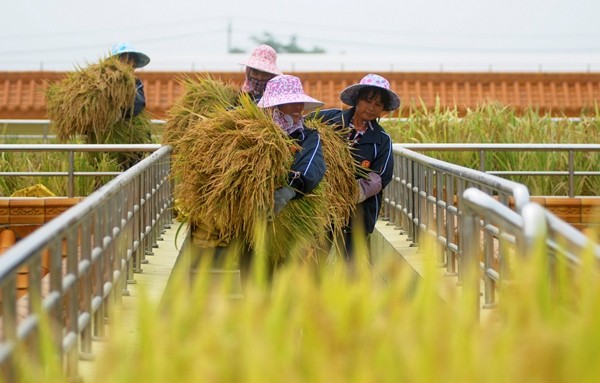China's Vice Agriculture Minister Zhang Taolin announced that the agricultural authority will perform more comprehensive evaluations of hybrid rice varieties after the eastern province of Anhui experienced widespread crop failure or low yields last year, China Daily reported.
The focus of the assessments will be the high yields and the capacity of the hybrid rice varieties to adapt to different growing environments, including their resistance to insects and disease, Zhang said at a new conference at the State Council Information Office earlier this week.
"There will also be evaluations of the efficiency of fertilizers and the grain quality of hybrid rice," Zhang said.
The massive crop failure, which affected more than 650 hectares of rice fields in six Anhui cities, has prompted Yuan Longping High-Tech Agriculture Co. Ltd. to cease the sale of its super-hybrid rice variety Liangyou 0293.
The hybrid rice variety was being largely cultivated in Anhui.
Yuan Longping blamed the low crop yields to inadequate prevention measures and abnormal weather conditions from June to July last year, which made the rice variety susceptible to rice blast fungus disease.
The company's founder, Yuan Longping, known as China's "father of hybrid rice," said that the adverse events in Anhui do not mean that there are problems in all hybrid rice varieties.
"There is a chance that the Liangyou 0293 variety could have suffered a setback in quality after years of cultivation. There could also have been disease mutations," Yuan told Hunan Daily.
Despite the crop failure in Anhui, Vice Minister Zhang said hybrid rice still plays an essential role in China's grain security strategy.
"We need a variety that can adapt to different cultivation environments. However, evaluation of a variety is usually conducted in a specific area. If that variety is cultivated elsewhere, without adequate assessment, defects in the variety will be exposed," Zhang said.



























